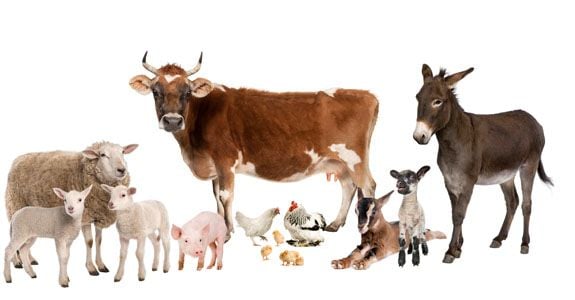
Have you ever dreamed of one day owning a farm? Well, owning some livestock can give you the same rewarding feeling. Livestock consists of animals such as cows, pigs, sheep, goats, donkeys, horses, and mules. Whether you want an animal to provide you with fresh eggs in the morning or one to ride through your pasture, livestock animals are your best bet to give you what you are looking for.
Choosing what livestock to raise relies heavily on how much space you have, if they need fencing, how much they eat, state and local property laws, and more. You should also consider what type of veterinary care your livestock will require to avoid the spread of diseases and external parasites. Your veterinarian can recommend the best vaccinations for your livestock so they stay as healthy as possible. Continue to the articles below to learn how you should care for each livestock animal.
-
The Myth of Natural
Pet owners occasionally tell veterinarians they are reluctant to use prescription medicine, spot-on flea products, heartworm preventatives, etc, because they would rather use something that is "natural." They are afraid of chemicals, and would rather use something that is organic or natural. But what
Read more -
Ringworm in Cats and Dogs
Ringworm is not actually caused by a worm, but rather by a fungus that infects the outer layer of skin and hair. It is a zoonotic disease, meaning it can be transmitted from pets to humans, or people to pets. There are numerous species of ringworm. It is most commonly recognized in cats (often kittens)
Read more -
Orthopedic Care for Dogs
Joint problems plague dogs just as commonly as they do humans. That's why orthopedic care can improve your beloved friend's quality of life. Common Orthopedic Issues A dog's joint problems may result from a variety of orthopedic injuries and illnesses. In some cases, these vulnerabilities are partly
Read more -
Natural Stress Relief for Pets
One of the most common complaints from pet owners is that their pets are destructive or disruptive when they are left alone. Dogs may bark, howl, chew, dig, defecate or urinate. Although these behaviors are often a sign that dogs need to be housebroken or crate trained, they can also indicate that a
Read more
- 1
- 2
- 3
- 4
- 5
- 6
- 7
- 8
- 9
- 10
- 11
- 12
- 13
- 14
- 15
- 16
- 17
- 18
- 19
- 20
- 21
- 22
- 23
- 24
- 25
- 26
- 27
- 28
- 29
- 30
- 31
- 32
- 33
- 34
- 35
- 36
- 37
- 38
- 39
- 40
- 41
- 42
- 43
- 44
- 45
- 46
- 47
- 48
- 49
- 50
- 51
- 52
- 53
- 54
- 55
- 56
- 57
- 58
- 59
- 60
- 61
- 62
- 63
- 64
- 65
- 66
- 67
- 68
- 69
- 70
- 71
- 72
- 73
- 74
- 75
- 76
- 77
- 78
- 79
- 80
- 81
- 82
- 83
- 84
- 85
- 86
- 87
- 88
- 89
- 90
- 91
- 92
- 93
- 94
- 95
- 96
- 97
- 98
- 99
- 100
- 101
- 102
- 103
- 104
- 105
- 106
- 107
- 108
- 109
- 110
- 111
- 112
- 113
- 114
- 115
- 116
- 117
- 118
- 119
- 120
- 121
- 122
- 123
- 124
- 125
- 126
- 127
- 128
- 129
